-
Filter by category:
- Apps
- Contamination
- Embedded Systems
- Field Solvers
- Interactive
- Mesh Generation
- News
- Numerical Methods
- Papers and Codes
- Plasma Simulation
- Starfish
- Surface Interactions
- Uncategorized
- Visualization
Posts in Category Contamination
Experimental investigation of QCM-derived sticking coefficients
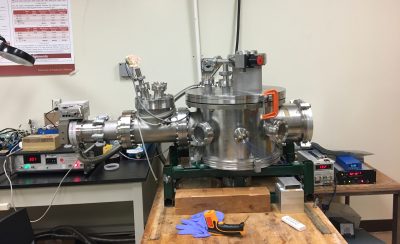
In this post we describe a campaign at USC Dept of Astronautical Engineering and at Blue Origin in Kent, WA to determine whether experimentally derived temperature varying sticking coefficients can be used to model gray-body contaminant mass transport. As expected, the answer was found to be no. These results were presented at the 2022 SPIE Optics and Photonics conference. (Dec 26 2023)
JWST Contamination Deposition Analysis
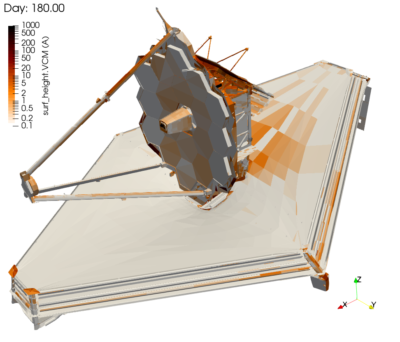
This article briefly describes recent work of analyzing water ice and molecular contaminant deposition during the 180 day commissioning phase of the James Webb Space Telescope (JWST). More details can be found in our 2022 SPIE Optics & Photonics paper. (Dec 25 2023)
CAD Based Particle Simulation Code
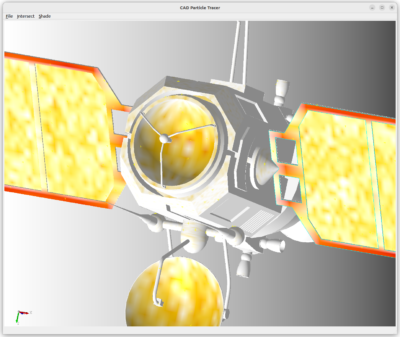
We demonstrated as part of a NASA SBIR effort the ability to run particle simulations directly with CAD geometries. Such a mesh-less approach is expected to lead to massive reductions in labor cost and the ability to rerun simulations whenever the design changes. (Dec 25 2023)
Particulate Surface Adhesion Sandbox
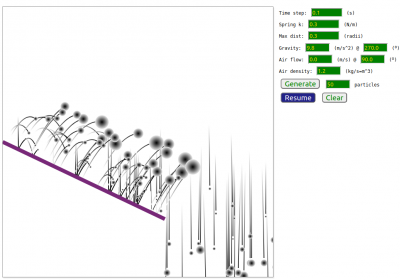
(TL/DR: This page contains an interactive Javascript sandbox for testing surface adhesion. You can play with it below or in a separate window by clicking here) One of the projects I am currently working on involves modeling the gas-surface or plasma-surface interface. This has dual applications. First, in the world of contamination control, it is […] (Sep 8 2020)
Free molecular flow in a cylindrical pipe – with multithreading
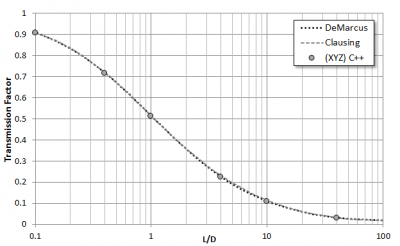
In this blog post we develop a multi-threaded C++ program for computing molecular transmission through a cylinder of a varying length. The results are compared against tabulated data of Clausing. (Mar 15 2016)
Particulate Contamination Transport on Orbiting Satellites
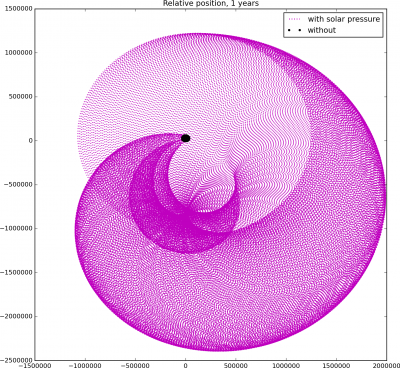
Particulates launched from an orbiting object may intersect the satellite on a future orbit and cause contamination of surfaces beyond the line of sight of the originating surface. This post describes a simply Python code that was developed to model this behavior with and without solar radiation pressure. (Jan 27 2016)
CTSP Molecular Contamination Modeling Validation
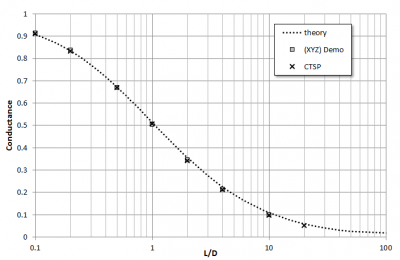
Summary of CTSP molecular contamination modeling validation effort to date (Dec 28 2015)
QCM Analyzer
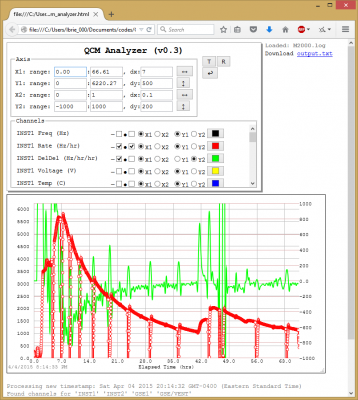
Interactive on-line analyzer of Quartz Crystal Microbalance (QCM) log files. The analyzer can visualize multiple channels, automatically compute smoothed delta-deltas, and lets you interactively analyze TGA data. (Nov 9 2015)
Detailed Surface Model
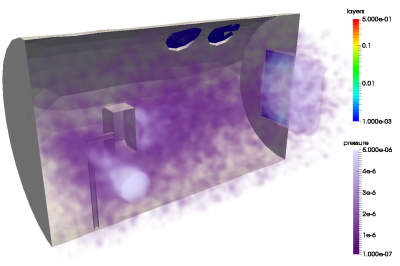
New detailed model was developed for the space-surface interface. Instead of using sticking coefficients, the model uses residence time to determine if a molecule "sticks". Adsorbed molecules are added to a surface layer and objects can also contain trapped gases diffusing to the surface. (Jun 30 2015)
On partial pressure determination of condensable materials with a TQCM
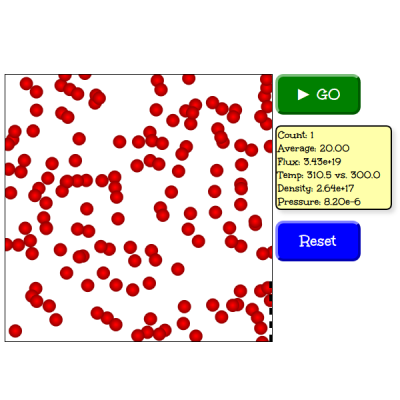
In this article we look at how we could use surface flux collected by a quartz crystal microbalance (QCM) to compute the volumetric partial pressure of condensable materials such as magnesium vapor. (Jul 28 2013)